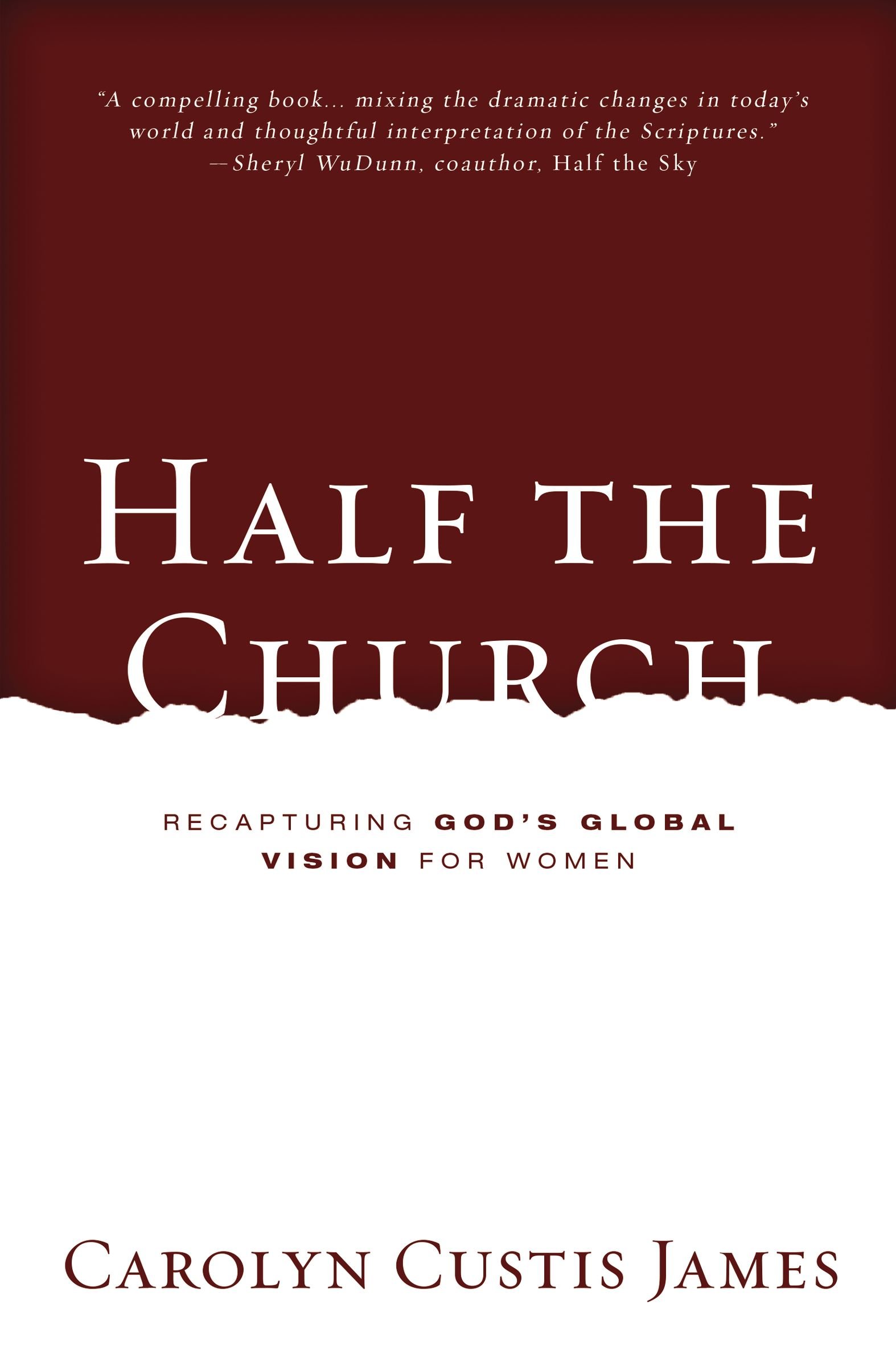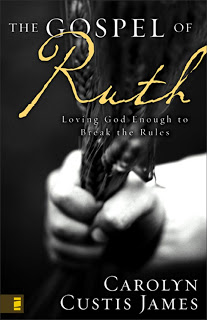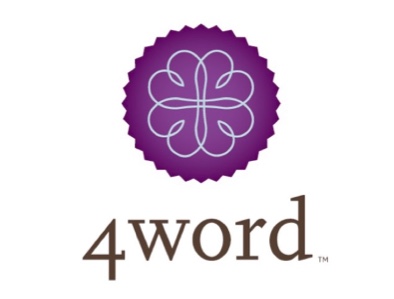 “Spiritual abuse is a real phenomenon that actually happens in the body of Christ. It is a subtle trap in which the ones who perpetrate spiritual abuse on others are just as trapped in their unhealthy beliefs and actions as those whom they, knowingly or unknowingly, abuse.” —The Subtle Power of Spiritual Abuse
“Spiritual abuse is a real phenomenon that actually happens in the body of Christ. It is a subtle trap in which the ones who perpetrate spiritual abuse on others are just as trapped in their unhealthy beliefs and actions as those whom they, knowingly or unknowingly, abuse.” —The Subtle Power of Spiritual Abuse
Perhaps one of the most alarming facts about spiritual abuse is that when the subject comes up “abusers don’t recognize themselves.” The abuser can be oblivious to the hurtfulness of their actions and be acting with the best of intentions. Or their abusive behavior is the dark face of a beloved and respected Christian leader, which makes it next to impossible for those who have only seen the sunny side of the abuser and are fiercely loyal to them to believe they are capable of spiritual abuse. We’ve seen examples of this kind of misplaced loyalty online in recent weeks.
And so the abuse continues.
As I started working on this post, I received an email from an old friend who is actively involved in Recovering Grace an online ministry designed by former “Gothard Generation” survivors to help others coming out of the spiritual, emotional, and even sexual abuse they encountered in the Bill Gothard system.
Her email reminded me of a short-lived stint I had in the employ of a man who was a devoted Gothard follower. My boss was a highly respected deeply committed Christian leader with only the best of intentions. He was one of those who “unknowingly” abuses, but whose well-meaning actions carried damaging repercussions. I say “unknowingly” because I did not know him well. But I sometimes wonder whether the Gothard approach simply validated his already existent abusive inclinations or if he was sincerely deluded.
Only God knows.
Convinced he was the spiritual leader of his employees, he stationed himself to work where he could keep a watchful eye on all of us. That in itself was rather intimidating to say the least. It also meant the slightest faux pas or difference of opinion was an occasion for a “spiritual teaching moment”—a lecture instructing that employee on how their actions failed to measure up to biblical spirituality according to Gothard.
Once I was on the receiving end of one of those “spiritual teaching moments” after he overheard me apologizing to someone by saying, “I’m sorry,” instead of “Will you please forgive me?”—as Gothard specifically instructed.
The entire staff worked in a constant state of paranoia. Suffice it to say, I did not remain long in that environment.
That was nothing compared to dangerous advice he was giving another employee, a gentle soul who confided to him in desperation that her husband was physically abusing her. Our Christian employer was advising her that the abuse at home would stop if she simply worked harder to be submissive—meaning she was the problem, not her husband.
That’s the backwards thinking of spiritual abuse. The victim is the problem. S/he’s at fault and needs to be coerced and shamed into fixing the problem and getting in line, whatever that problem might be. Or else s/he needs to be shown the door.
My goal in continuing the discussion on spiritual abuse is twofold: (1) to be one voice among others who are sounding the alarm about the spiritual abuse that smolders, often undetected or deliberately concealed, beneath the surface in American evangelicalism and that needs to be exposed and (2) to open an online discussion where we can learn from one another and join together to address and take preventive action against this injustice that is thriving among us.
This means I’m going to need your help.
Nothing will change if we allow ourselves to remain silent spectators to wrongs that are deliberately or innocently perpetrated within the church of Jesus Christ. If you have a story, a resource, or a link that might be helpful to someone else, please share it in the comments. If you fear your comment might make things more difficult for yourself or someone else, please feel free to comment anonymously. Some situations are simply too volatile at the moment. I’ve learned of two more situations like that this morning.
I’m grateful to have an expert like Dr. Phil Monroe weighing in as he is able. At the moment he is blogging from Rwanda where he is leading a training project with Biblical Seminary’s Global Trauma Recovery Institute. So Phil isn’t talking theory. He’s actively engaged in ministering to those who have suffered from unimaginable abuse.
As he was packing his bags for Rwanda, he took time out to post this helpful article for our discussion about spiritual abusers. He’ll be joining in with comments and/or to respond to questions as he is able.
One of the frustrations in discussing spiritual abusers is the fact that there is no clearly defined profile to help us identify them. Dr. Monroe writes, “we do not have empirical survey evidence for those who use spiritual tools to harm or manipulate others.”
The lack of a profile is further complicated by the realization that some spiritual abusers are deliberate and malicious, while others “unknowingly” abuse others for what they believe are biblical reasons. Some consciously justify abusive behavior for what they deem the greater good, as a kind of “war ethic” where the usual Christian ethical norms are set aside and collateral damage is accepted as an inevitable by-product of war.
These are just some of the faces of spiritual abuse.
The centerpiece of any kind of abuse, however, is power and authority. Typically, we think of people in official positions of power—Christian leaders who have publicly recognized spiritual power and authority over others. To be sure, these leaders are especially vulnerable to the temptation to spiritually manipulate those in their care for selfish purposes.
It may be helpful, however, to be reminded that we don’t have to be at the top of the leadership ladder or the power pyramid to have power over someone else and to abuse that power to serve our personal agenda. Nor is the person at the top of the organizational chart—the pastor, the president, the chairperson—immune from suffering spiritual abuse. See The Plea of the Pastor’s Wife for an anguished example of the deep wounds and trauma inflicted when a leader is abused.
At the very least, this means we all need to be on guard against our own fallen tendencies to spiritually abuse others. In his article on the spiritual abuser, Dr. Monroe doesn’t let anyone off the hook. He lists motives we all share that can easily prompt a person to spiritually abuse others: fear, love of power, efficiency, ego, and habit.
In The Subtle Power of Spiritual Abuse: Recognizing and Escaping Spiritual Manipulation and False Spiritual Authority within the Church (a superb resource on spiritual abuse recommended by a commenter) co-authors David Johnson and Jeff Van Vonderen point to this callous disregard for others in the service of self as central to the problem.
“Spiritual abuse can occur when a leader uses his or her spiritual position to control or dominate another person. It often involves overriding the feelings and opinions of another, without regard to what will result in the other person’s state of living, emotions or spiritual well-being. In this application, power is used to bolster the position or needs of a leader, over and above one who comes to them in need.” (p.21)
Let us keep in mind that that not every strong, decisive leader, not every tough decision, difficult conversation, or employee firing qualifies as spiritual abuse.
At the risk of oversimplifying, it seems to boil down to basic questions about how we live out the gospel in our relationships with others, or how we use power, not selfishly, but for good in the lives of others.
Although he isn’t talking about spiritual abuse per se, Andy Crouch’s Q talk on power has enormous relevance to this discussion. Andy insists that power as God intended is supposed to be good. It is intended for the flourishing of others and reflects how we image God.
Please take time to watch Andy’s talk—When Christians Have Power—where he takes this discussion to an entirely new level.
For beings made in the image of God, to misuse our God-given power is to misrepresent God by presenting a false image of the true God. This ultimately leads to injustice, instead of to greater flourishing of all involved.
Spiritual abusers come in all sizes and shapes. Some are sincerely deluded, others are deliberately and maliciously abusive. Some are men; some are women. Some have a great deal of power while others use what little power they have to belittle and browbeat those at the very bottom of the food chain. Often an abuser has an inflated view of themselves and a lack of accountability. Worse still, those who should hold them accountable are blinded by a misplaced loyalty or condition to go along with the so-called authority figure.
The Good News of Jesus Christ (through the power of his Holy Spirit) calls us to overcome the world by “loving our neighbors as ourselves,” not abusing them.
How would you describe spiritual abusers you’ve encountered? What characteristics have you seen? How have you’ve seen people constructively point out abusive behavior to those who are “unknowingly” abusing? Have you ever been spiritually abusive—knowingly or unknowingly? How have you seen people use their power and authority selflessly to promote the flourishing of those in their care?
To learn more about the Rwanda Project, read Trauma Recovery and Counseling Training in Rwanda.
Here is the complete series on Spiritual Abuse:
- It all started with Lean In: Seek and Speak Your Truth
- Part 1: This Can of Worms Must be Opened!
- Part 2: The Perfect Storm
- Part 3: The Many Faces of Spiritual Abuse
- Part 4: Identifying the Triggers of Spiritual Abuse
- Part 5: Standing Up to Spiritual Abusers
- Part 6: The Underlying Belief System of Spiritual Abuse
- Part 7: The Enablers of Spiritual Abuse … or When Silence isn’t Golden
Dr. Phil Monroe on Spiritual Abuse:
- Spiritual Abuse: What it is and Why it Hurts
- Why Do Some Spiritual Leaders Abuse Power?
- What Factors Support the Use of Spiritual Abuse?
- Four Belief System That Support Spiritual Abuse
- Do You Enable Spiritual Abuse?
- Failures to Act—Why we don’t always blow the whistle on abuse
Also by Frank A. James: Structural Patriarchy’s Dilemma for Women
Mary DeMuth: Spiritual Abuse: 10 Ways to Spot It
Rachel Held Evans: Series on Abuse















WOW this blog and Andy Crough's talk are quite powerful. His ending visual is certainly one that's so impacting to me (and you.) And you ust go see the original painting when you move to Philadelphia.
LikeLike
Thank you so much Carolyn, for your writings on spiritual abuse. I have read quite a few books on this subject, but I appreciate hearing it from a woman's point of view. I haven't had a chance to read all the posts of people, but from what I've perused thus far, your topic stirs up many feelings among women in particular. I so agree…usually the abusers have no idea they are abusing. I don't think there is an awareness in the evangelical community that this is an issue. I think it would be most helpful to have a forum, book or website where others could share stories and what they learned from their experience. As I have walked away from my situation a number of years ago, I am still trying to deal with the trauma that periodically comes back to haunt me. I also have in my new “spiritual tool box” life changing things that God did as a result of what took place. I've spend the last three years studying humility. That study has changed my life. It hasn't taken away the pain and loss that I walked through, but I am grateful to be more like Christ as a result. Oh, it grieves me to know that so many women might go through what I did and have no clue what to do. I would love to see a way for women to be encouraged, given biblical guidance, receive hope and prayer. I certainly didn't learn how to deal with spiritual abuse in seminary and I'm sure others haven't either. At one point, I believed I could never return to serve in the local church. Yet, God in his mercy has allowed me to do so part-time. I have a new understanding, a new perspective and a new life. He will use EVERYTHING for good, no matter how painful. Thank you so much for being a voice to something that seems so hidden in churches today. Nancy
LikeLike
I was wondering if there is any connection between spiritual abuse & the numbers of adults who are no longer going to any church?
(I highly recommend the book.)
LikeLike
Having been through multiple Christian experiences, I am no longer a Christian due to the abuses. Perhaps abuse results from the very presence of the ingredients needed for abuse. My childhood abuse, I understand, I trusted the adults in my life, who quite simply were not trustworthy or as this article suggest were “unknowingly” abusive on an emotional level and set up further abuses. However when it comes to spiritual abuse (another form of emotional/mental abuse) which you seem to be talking about for adults primarily, it always seems to come back to the power issue. People who set themselves up (thru' seminary education or founding a church, natural charisma or any other means) are just that, self-appointed leaders, people who were drawn to the position, perhaps with the best of intentions.
If Christianity is a PERSONAL relationship with god, why are self-appointed leaders causing so much havoc? Clearly there is something out of balance in how the church at large views the power structure in this PERSONAL relationship. Should there be such a power structure in a relationship of just me and God? There is something very backwards in empowering charismatic leaders carte blanc while disempowering the masses… It seems to be the ongoing issue with the church throughout the ages.
LikeLike
I'm not in a position at the moment to say much, but I want to throw out a few ideas that have been percolating in my mind for quite a while.
(1) The potential for abuse is not far from the surface in any relationship where one person is an acknowledged authority over another, which is why it's so commonly associated with the military, boarding schools, authoritarian churches, patriarchal marriages, and the parent-child relationship. This is not to say that authority structures are wrong, but the church needs to do a lot more unpacking of Jesus' admonition that leadership is service. It seems that the best we've gotten to so far is a pious, “I'm doing this for your own good.”
(2) Nancy Abbott mentioned humility. I've noticed some organizations tend to promote arrogance more than others — or perhaps they attract it. Because I get so frustrated with people who make vague accusations without “naming names,” I'll be bold enough to say that in my experience, the adjective “arrogant” comes up most frequently in discussion of churches of the more conservative Reformed variety (e.g. PCA) and in certain Christian homeschooling organizations (e.g. the Classical Christian movement), and indeed this is where I have seen the most spiritual abuse. Let me hasten to say that much good has come out of both of these groups as well. Indeed, the church at which I observed and personally suffered spiritual abuse was also the best church experience of my life. But without a doubt, the “we alone hold the truth” mentality promotes both arrogance and abuse.
(3) Our unfortunate human tendency to idolize leaders in any field feeds that arrogance with devastating effects. The “superstar mentality” that has been destroying sport, music, business, and academia is no less destructive to the Church.
LikeLike
Thank you for what you are posting on spiritual abuse. I deeply appreciate the focus on speaking truth-calling abuse what it is, but also on humility-remembering that we all fall short. Even abusers are in need of God's grace and even those of us who are victims of the behavior of others cause hurt, at times, to other people. I am trying to work through that right now. I am striving to stand firm in calling wrong wrong, while working to cultivate compassion in my heart for those who are acting wrongly. It is exhausting. It is draining. I am sure you know that. Your work in highlighting and opening up discussion on this topic is so needed.
LikeLike
Charity, Looks like the heartbreaking comments on either side of yours—Nancy's and Anonymous'—answer your question.
Which underscores just how serious this problem is. People who name the name of Christ and then abuse others, are misrepresenting Jesus at the deepest level.
Thank you Linda for your honest and heartfelt comments. These are systemic problems with deep roots. This kind of honest talk is needed to make headway against these wrongs.
While I have been blogging about spiritual abuse (and hearing real-time reports of abusive situations), I have also been reviewing a soon-to-be-published commentary on Mark's Gospel. Reading about Jesus keeps me going. Reminds me that Jesus was a haven for the vulnerable and abused and a straight-taking rabbi with those in power. It is a grievous misunderstanding when those who walk away from abusive situations also walk away from him.
Anonymous, please know there are many, many of us whose hearts go out to you and who grieve what you and others have suffered. I pray some day you will find a church that lives up to its calling to represent Jesus by being a safe and healing haven for you.
LikeLike
I haven't a clue where I would start. I've been thinking about blogging about the many things I've experienced on my own blog. The only problem for that to happen is that I have family members who read occasionally. I'd have to do it anonymously and change details (places, people, years) about it all and it'd be a work of fiction at that point.
I did read and do a study on the Subtle Power of Spiritual Abuse and that was helpful. I think I will do Toxic Faith and Soul Repair next.
If there was an interview (video or post), I'd definitely submit what happened. It's just too strange for words.
LikeLike
Jennifer, one thing you could do to maintain your anonymity and still get your story out there is write on http://www.SpiritualSoundingBoard.com. Many heart-wrenching stories are told there, some anonymously and some by identity. For example, you'd only have to read Selah's story as an example of how some lives have been devastated by spiritual abuse. Here's the link: http://spiritualsoundingboard.com/2013/06/15/adult-children-shunned-by-homeschool-parents-selahs-story/
Selah was abused, shunned and rejected by her own parents, but is finding finding encouragement, hope, support, and prayer by those who care and understand at the Spiritual Sounding Board. If you only gave yourself a pseudoname, you could write anonymously and without a doubt receive similar support and prayer. God bless you!
LikeLike
In the past 3 days I have met with 3 different women. In each the pain of spiritual misuse has taken place. The tears of pain stream down the daughters of Eve crying for comfort. The church, the bride has misrepresented our Christ, the gospel and scripture for self serving power and oppression. The incidences are so numerous and the outcry is becoming louder. Carolyn, you have said in the past that men have to open the doors for women. The pain in women's voices is hard for many men to hear. They often respond with dismissal when tears fall, when truth is shared in ways that are too emotional. This travesty of not honoring those who are not in power is beginning to reach crescendo proportions! I believe that God is moving. I draw strength in the outcry of many, I am no longer alone in the pain. My story is not unique. But truth is being revealed. May each of us be given the grace to respond in love as God reveals a great sin. Thank you dear woman for calling it out. Thank you to each of the participants. May this begin an avalanche of amazing proportions!
LikeLike
Selah's story (see Louise's comment) is in microcosm the greatest tragedy of spiritual abuse. What could possibly be worse than the sufferings of those who have experienced church-related spiritual abuse? The inevitable association of the name of Christ with these actions.
(Please forgive the following diversion into homeschooling; it helps me, at least, to understand better what is at stake.)
We were early homeschoolers, and it was one of the best decisions we made as parents. It brought us much closer as a family, enabled our children to excel academically far beyond what they were offered in school, taught them to relate to people of any age and cultural background, and — perhaps best of all — gave them time and space to discover who they were apart from peer pressure. Don't get me wrong; we were far, far from perfect in our homeschooling. But these benefits were real and made me an enthusiastic preacher of this “gospel.” In recent years, however, I've been hearing more and more negative stories. I suppose that is inevitable as homeschooling becomes more popular and widespread, but it breaks my heart — and makes me want to spit nails. This smear on the reputation of one of the greatest improvements to education and family life in modern times is doing incalculable damage.
Monumentally important as homeschooling is to me, it is really a very little thing. If I feel so strongly about the damage done to its name by those who misuse it, how should I feel about what spiritual abuse does to the Name of Christ?
Isn't this the worst possible breaking of the Third Commandment? (Or Second, depending on who you are and how you count?)
LikeLike
I’ve been following this series, and started a thousand comments in my head, but there is just so much to this can of worms! One question I struggle with is exactly the one of keeping our own humility. Isn’t humility what gets us into abusive situations in the first place? The humble person takes passages of the Bible to heart that say “submit to one another” and “don’t judge” and “first remove the log in your own eye” until one day after years of suffering and soul searching he comes up for air to realize that he has been abused and it’s too late to stand up for himself and justice. What exactly are the early warning signs that show us we should shift from submission to “right judgment” and speak out against the Pharisee?
LikeLike
Carolyn, thank you for facilitating this discussion. This can of worms needs all the air it can get.
I'm presently engaged in a very difficult, personal struggle with my family–who are calling down every Scripture passage they can think of to remind me that my behavior is “sinful.” Don't get me wrong–I love the Lord, and have no desire to sin. But God hasn't called me to be anyone's doormat, whipping post, or toilet, and Jesus' command to turn the other cheek had more to do with returning grace when nonbelievers give offense than it did with allowing those I love to continue sinning. Ignoring their abusive behavior is not love, as it will only serve to spread the sin and feed new branches of evil. BUT, I've recently become aware that this spiritual abuse may be an active part in something that is poisoning the church body with which I fellowship. The church itself is tottering towards a split, as God is moving the congregation to a point where they must choose to follow Him or to follow their own way, but I've begun hearing reports of the kind of spiritual abuse you and Phil are discussing. Your insight and wisdom are helping to coalesce my prayers for the body.
One issue that may be a part of the dual nature of this topic (deliberate vs. unintentional) has to do with an unhealthy view of self. It is very easy to look at an authoritative or self-assured person and mentally pin the label “arrogance” onto his/her forehead. “He invites sin into his life, by grabbing power for himself when he should be serving.” But Satan can flip that weakness either way. A low sense of self-esteem, or years of “Scriptural reconditioning,” can allow the same opportunities for abuse from either end of the spectrum. Plenty of people fall into a cycle of abuse who are convinced that they are worthless or, more importantly in church leadership, that they should consider themselves from an abased point of view. There's a dangerous argument in Christianity, that humility and submission translate into a denial of any offense given. Sometimes, offense IS given. Sometimes, we need that offense to kick us out of a rut and into a right walk. And sometimes, an offense given to one of God's lambs translates to an offense against the Shepherd Himself. Humility and humiliation are not the same, and it behooves Christians in all parts of the body to nurture those He loves. Rather than favor those *we* love.
In my experience and meditations related to this subject, I find that people tend to fall into one of two groups: those who value loyalty most of all, and those who value honesty most of all. A lot of blocs and bullying I've seen have come out of a conflict between these two groups–usually when one is in an extreme minority. The knee-jerk reaction to this post is to assume that spiritual abuse stems from the loyalty camps, but there are bullies who wield their demand for truth like a police baton against lone loyalists.
Questions I have: How long should a believer fight against an abusive situation? If an abuser will not recognize his/her own abuse, much less any authority over him/herself, does there come a point where a believer should stop thinking about the situation in terms of “body of Christ” and start to consider the abuser(s) as cancerous or foreign bodies? Are there any “scripts” we should be looking for, and do these routines and/or codewords provide any insight into the abuser's bondage? How can we communicate with the abusers (especially when they are unconscious or unintentional), so that healing can be pursued?
LikeLike
Thank you for writing about this…
LikeLike
I have been pondering how to break down all of my stories (I've been in a series of abusive fellowships since I was born, all inhabited by sincere, well-meaning people) and their bizarre ends (some of which people frankly tend not to believe in the least when I share them) into multiple anonymous mini-posts that might best hide who I am from a potential “friend” or family member who would read them.
But I have had a rough week and do not know if I have it in me. Therefore, before this blog post sits too long, I thought I would just share some “issues” that are particular to my story and that I fear might not be mentioned in others stories. I do not doubt that many stories will be received and so think that highlighting these issues would be my best contribution.
1) A church does not have to be hierarchical or rigid to cultivate spiritual abuse. Seeking after an “organic” church is hardly a prophylactic against abuse. Again and again I hear that spiritually abusive churches are very hierarchical. Well, the first tiny and insular abusive circle I was in was so NON-hierarchical that it specifically did not believe in pastors. But wow, was it ever an environment that dictated everyone's business legalistically and left my soul unable to breathe! The “common people” are *very* effective at abusing one another if they are convinced that this is what true fellowship and true honor of God is about. And there will be stronger personalities and/or people who carry a lot of weight who will be devastating arbiters of the tiniest minutae whether or not their position of authority over your life is an “official” one. Also, although my childhood church was not part of “charismania,” I can speak from lots of subsequent experience that, as highly valuable as I believe the “power gifts” to be, whenever a church member (leader or not) is or seems to be operating in these, they just automatically have so much authority in most peoples' lives that it is really scary. This needs to be monitored and accounted for much better, as it does not take long at all for persons with these gifts to have followers whom they abuse with their less mature ideologies and character issues seeming to be supported by their ability to prophesy, heal, etc.. Whether they become a chronic cancer to the church that preys on its weakest members or divide the church, this dynamic is not to be taken lightly.
To be continued….
LikeLike
You are so right, Anonymous. While I'd never deny that God communicates directly and personally with people these days, there's so much room for human desire and sin to garble the message that we ought to be exceedingly careful, especially where others are concerned.
“it does not take long at all for persons with these gifts to have followers whom they abuse” In my (admittedly limited) experience, churches with well-established hierarchies are generally safer than those whose “authority structure” is relatively recent, especially if the latter revolves around a single person or small group. (Although the Roman Catholic Church is Exhibit A that abuse can happen even in the oldest of denominations.)
I wonder if part of the problem isn't that we so desperately want certainties and clear answers. When someone comes along and implies, “If you follow these dating rules your marriage will be secure,” “If you raise your child this way he won't get into drugs as a teenager,” or “If you always tithe to the church you'll never have money problems,” we become eager followers, even at the expense of plain common sense. I'm not saying there aren't good solid principles for the above and more, but there are no hard and fast rules, and when we try to establish them, we set ourselves up to be abusers — or abused.
LikeLike
Linda, I agree that our desire for certainties and, I would add, the ability to control our lives makes us really susceptible to following wolves (or well-meaning shepherds who are themselves following wolves or whose pens are too small and who are easy and free with those rods).
I had posted a much longer “Part Two” to my comments last night that is not posting for some reason. In it, I was talking about how abuse inordinately harms the weakest members and about my personal experience of being beat up and micromanaged to shocking degrees as someone who is chronically ill and has sought healing in these churches. I have pretty severe PTSD after many years of that. So much of the abuse of the ill in particular thrives b/c the healthy are, deep down, desperate to believe that they would not have to live in my shoes, that this life can be more controlled.
Hopefully Carolyn can find a way for my post (which was received but does not appear) to actually show up here. I had not saved it….
I would also add as a point #3 (assuming point #2 posts) that there are subtle or overt ways in which these groups of people isolate you from others. For instance, in my relationship with a very abusive mentor, she was purportedly interested in my developing more friends and more of a support network outside of her. However, in many subtle ways she kept me from everyone w/ whom I might become friends and picked them apart, painting them all as unsafe and less spiritually mature when really they would have been my safest bet and guiding me toward those over whom she already had total control, like me. Likewise, growing up, I was essentially taught that only our church contained the true Christians and that it is very unlikely that almost any of the other Christians I meet are Christian (and even then they are compromised). Although I rejected the teachings even as a small child, needless to say some of the ideas really scrambled me and made it all but impossible to relate to other believers when I finally got away to college and had a youth group there to attend.
LikeLike
I could not agree more with Anonymous's comment concerning the attempt to isolate and control. My manager has purposely tried to break up friendships (unsuccessfully), in order to make sure that each person's primary loyalty is to him. Anything that competes with that loyalty must be eliminated. (I have also seen an alcoholic parent do this with his own children).
Another aspect of the abuse of power that has struck me is that my manager's bizarre and threatening behavior began over time to seem 'normal' to me. After a while, when he said strange and intimidating things I was less and less shocked. I would think 'Fine – whatever you want – just leave me alone for one more day'. It was a matter of survival.
LikeLike
Is there some way to talk to someone to see if I am being spiritually abused by a mentor?
It's so confusing because this person is so loved by everyone and important in the church…but this person hurts me tremendously. Yet I stay invested in the relationship because they have also really helped me.
It's complicated…I just don't feel comfortable posting about it publicly. Is there anyone to talk to to find out if you are being spiritually abused?
LikeLike
Pingback: The Perfect Storm | Carolyn Custis James
Pingback: From Angst to Action—Preventing Spiritual Abuse | Carolyn Custis James
Pingback: The Enablers of Spiritual Abuse … or when silence isn’t golden | Carolyn Custis James
Pingback: Structural Patriarchy’s Dilemma for Women | Carolyn Custis James
Pingback: The Underlying Belief System of Spiritual Abuse | Carolyn Custis James
Pingback: Standing Up to Spiritual Abusers | Carolyn Custis James
Pingback: Lean In: Let’s Start Talking About It | Carolyn Custis James
Pingback: This Can of Worms Must be Opened! | Carolyn Custis James
Pingback: Identifying the Triggers of Spiritual Abuse | Carolyn Custis James
Pingback: Dis-abling spiritual abuse
Pingback: Be wary of churches breaking the silence